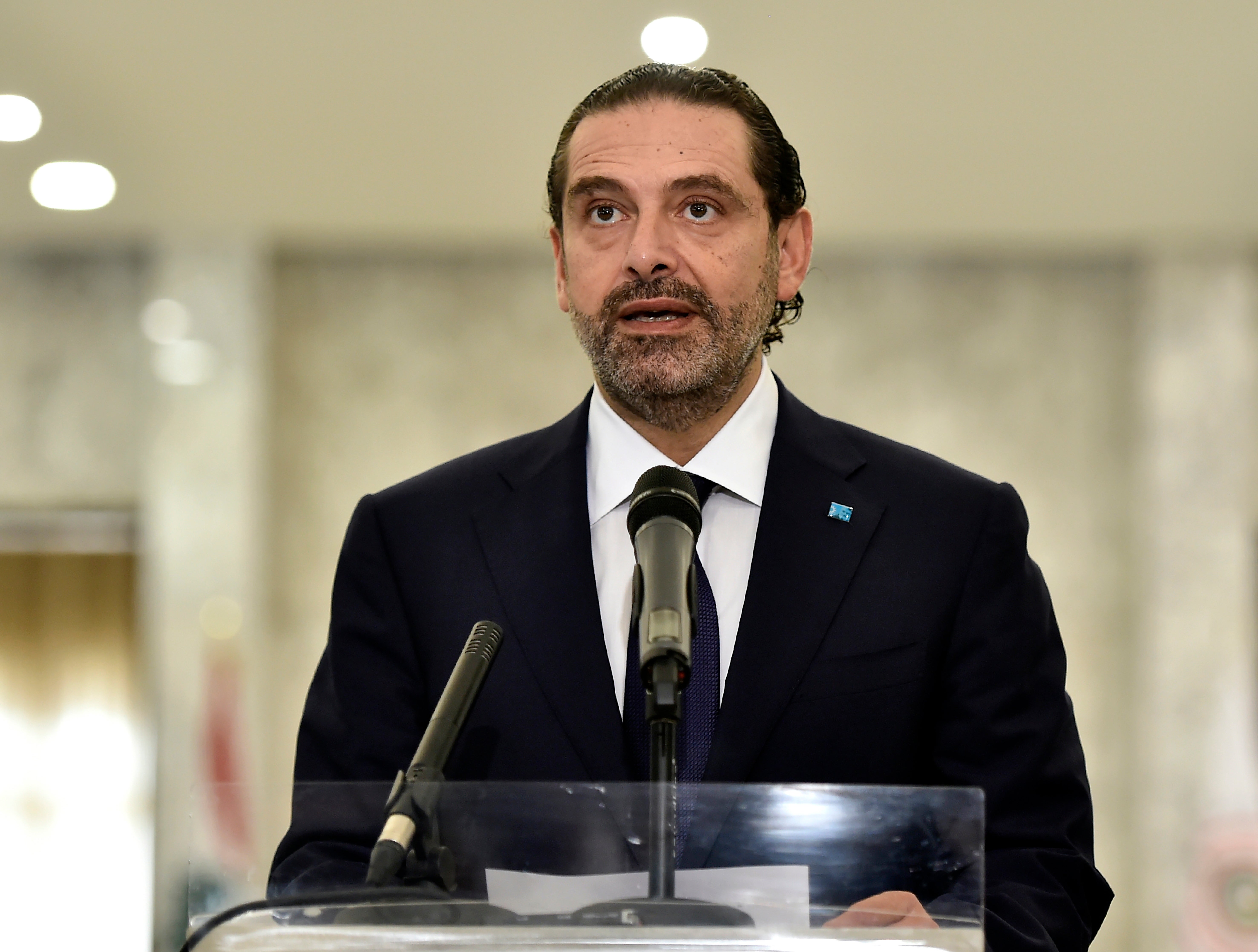Lebanon’s Hariri returns as prime minister – one year after protests forced him out: ‘It’s a massive step back’
‘We need to get out of this generational politics, this is exactly what we were protesting against’

Your support helps us to tell the story
From reproductive rights to climate change to Big Tech, The Independent is on the ground when the story is developing. Whether it's investigating the financials of Elon Musk's pro-Trump PAC or producing our latest documentary, 'The A Word', which shines a light on the American women fighting for reproductive rights, we know how important it is to parse out the facts from the messaging.
At such a critical moment in US history, we need reporters on the ground. Your donation allows us to keep sending journalists to speak to both sides of the story.
The Independent is trusted by Americans across the entire political spectrum. And unlike many other quality news outlets, we choose not to lock Americans out of our reporting and analysis with paywalls. We believe quality journalism should be available to everyone, paid for by those who can afford it.
Your support makes all the difference.Saad Hariri has been chosen as Lebanon’s prime minister once again, despite being ousted by nationwide protests last year, in what is being seen as a desperate bid to stop the country’s collapse.
The prime minister designate vowed to speedily form a cabinet of “non-partisan specialists” describing the coming weeks ahead as the “last opportunity” to save the country that has been destroyed by Covid-19, the 4 August explosion in Beirut, and an unprecedented financial collapse.
Mr Hariri’s dramatic and controversial return was secured by a slim majority – just 65 of out a total 120 votes – amid deep divisions over the shape of the cabinet he is expected to form.
"I say to Lebanese people who are suffering hardship to the point of despair, I intend to keep my promise, to work on stopping the collapse that threatens our economy, society and security," he said in a brief statement on Thursday.
But Mr Hariri’s reappointment, whose father Rafiq was also prime minister, has not been welcomed by those protesting for systemic change to what they see as endemic corruption and nepotism in the ruling class.
“We are in a disaster, how are we still allowing this to happen? It's a massive step back for the protest movement,” said Mariana Webhe, a protester who first spoke to The Independent during last October’s rallies. Her business was blown up in the August blast and she has since sent her daughter abroad fearing the country is not fit to live in.
“We need to get out of this generational politics, this is exactly what we were protesting against. If you were a true leader you would step back and say we need new people in government.”
The Sunni Muslim leader secured the backing of his own party, Future Movement, the Shia political group Amal, and the Druze Progressive Socialist Party among others.
President Michel Aoun's party, the Free Patriotic Movement – the largest bloc in parliament, the largest Christian party, as well as Hariri’s former coalition partner – withheld support.
Another major Christian party, the Lebanese Forces, also formerly a Hariri ally, withheld support.
The powerful Shiite group Hezbollah had been among the most enthusiastic supporters of Hariri's return to the premiership but refrained from voting for him to avoid breaking ranks with its ally, the Free Patriotic Movement.
Mr Hariri resigned from his post a year ago amid nationwide protests, dubbed the October revolution, against widespread corruption and mismanagement of the country’s economy.
His successor Hassan Diab, a technocrat supported by Hezbollah, stepped down after the port explosion, which was triggered by several thousand tonnes of poorly-stored explosive materials in Beirut port that the authorities appeared to know about but failed to take action on.
In the year since Mr Hariri was in power the country’s economy has continued to nosedive with the currency losing nearly 80 per cent of its values, food prices doubling, and soaring unemployment and inflation.
Lebanese citizens have also been unable to access their savings after banks slapped on capital controls fearing a run on deposits.
The blast meanwhile devastated the capital, killing nearly 200 people, and injured over 6,000 more. Tens of thousands of people were left homeless and the damage costs millions of dollars.
The explosion was seen as further proof of an incompetent political class in charge of governing the tiny Mediterranean country since the end of its 15-year civil war in 1990.
Lebanon is also struggling to handle the Covid-19 pandemic, with almost record numbers of new coronavirus cases being recorded every day. So far more than 65,500 and over 530 people have been killed.
Dr Firass Abiad, the head of the country’s main Covid-19 treatment facility, told The Independent the country had reached 90 percent of its critical care bed capacity, with just over 20 critical care beds still available nationwide for those who are sick.
“We are also seeing a worrying search in cases coming through the airport from abroad,” he added.
Join our commenting forum
Join thought-provoking conversations, follow other Independent readers and see their replies
Comments